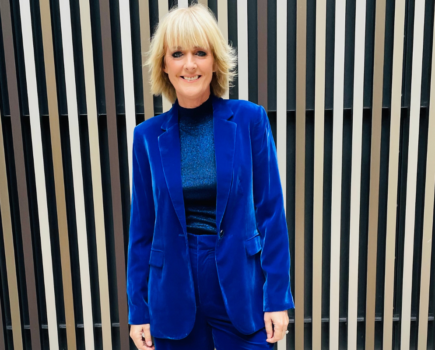Saying goodbye to loved ones is never easy, but how do we cope when we can’t see them before they pass away? Here, two bereavement councillors from the Sue Ryder charity give some guidance on how to deal with grief during lockdown.
Being unable to congregate at a funeral or sit by a hospital bedside to say goodbye makes losing someone you love a lot harder. Take some of Lucy Nicholas and Felicity Ward’s expert advice on how to look after yourself and your loved ones in difficult times during lockdown.

“When someone dies it can feel very unreal and takes time for us to accept their situation”, says Lucy. “Not being able to say goodbye to the person who is dying or only being able to speak to them on the phone or video call, may make the situation more unreal for us, which in turn makes it more difficult to accept.
“The level of emotional distress of not being able to be with a loved one in their final moments may be psychologically overwhelming and could lead to lasting trauma for some people.
“Having our usual routines of school, work or activities can provide us with a sense of safety like an anchor to life before our loss. And places of worship which, for some of us, helps to add meaning of our loss, are no longer an option for us.”
Felicity recommends some coping strategies to use in the face of emotional hardship and how you can mould these to life in lockdown.
Practise self-care

“Keep to a routine as much as possible and if you’re struggling to do this, create a list of ‘basic needs’ and tick them off as you go — set alarms on your phone or reminders in your calendar. Try things like drinking a glass of water, taking medication, brushing your teeth and hair, having a shower and having something to eat.”
Get creative

Activities to occupy time and focus your mind are best. “Why not try a jigsaw, painting, colouring in, create a memory or hope box, drawing, photography, creating a collage, listening to music, playing an instrument, singing or writing. Do for at least 2 hours throughout the day.”
Stay active

“Try something that you might not have done before or something that is familiar. There are lots of videos on YouTube, such as yoga classes, dance classes or meditation.”
Try something practical

“Take on a practical activity — DIY projects or some gardening. You may find a new hobby along the way. Try cooking or baking; learn a new skill by searching the internet for video tutorials — why not learn how to make your own pasta? Start origami or juggling — the options online are endless.”
Socialise where possible

“Make time to phone or write to a loved one if possible. Try setting up a group video call with your loved ones and arrange to have a virtual dinner together. It’s good for the mind to speak about your loss with people who understand, even if you cannot touch them.”
Relax

“Have a duvet and pyjama day or binge watch your favourite TV show or film or have a bath. Easy.”
Therapeutic activities

“Join a Sue Ryder Bereavement community group, or read a book about loss and coping with loss; write a journal of thoughts and feelings. Express your emotions; cry, laugh, talk out loud to yourself or your loved one.”
Sue Ryder provides a range of online bereavement support before and after saying goodbye to a loved one, including free video counselling delivered through trained bereavement counsellors; an online community forum offering 24-hour peer-to-peer support and a wide range of advice and resources for people who are grieving or supporting someone through bereavement.
To find out more visit community.sueryder.org or to make a donation visit sueryder.org/support








